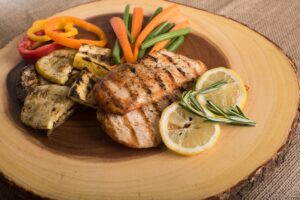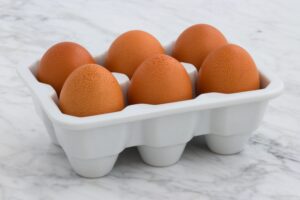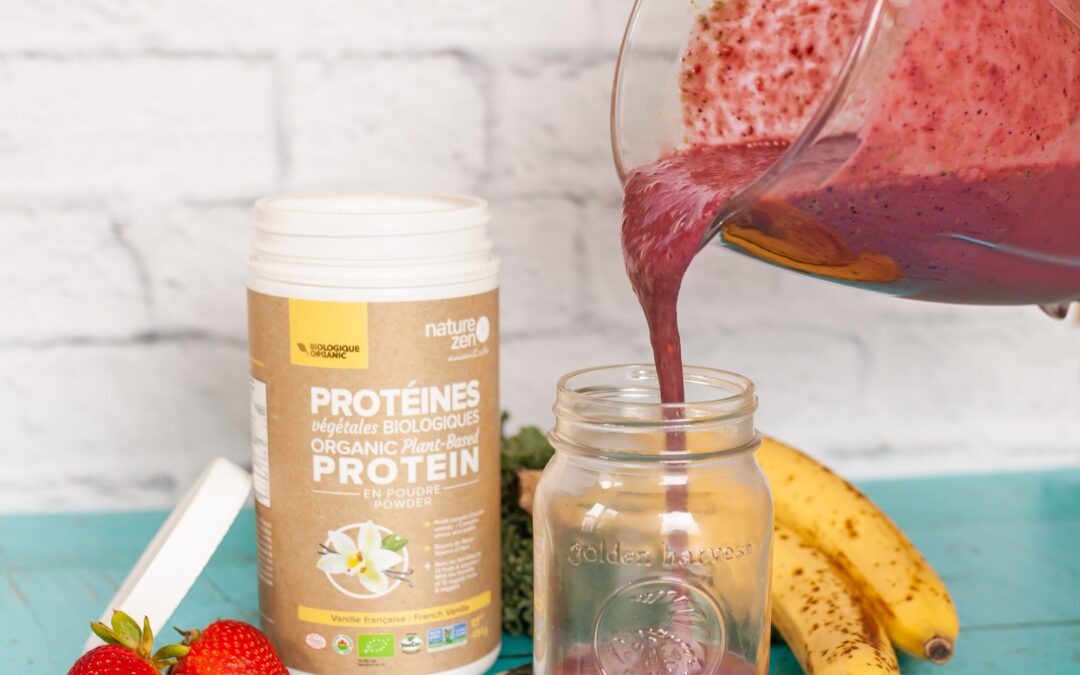Many people in the fitness industry beat the drum about protein and the many benefits that come with a high protein diet. It really is an important macro-nutrient and one which can help you more than you think! How much protein is needed may vary depending on lifestyle and levels of activity. However, it is often often under-looked and not considered important. Vegetarians and vegans will often have a greater challenge due to the more limited options and lack of complete proteins.
What is protein?
Protein is a macro-nutrient just like carbohydrates and fats. It is made up from 20 amino acids. 8 of them are considered essential and for metabolic function as we do not produce these in the body. All 8 can be found in meat sources which are known as complete proteins. Other sources may contain a variety of different amino acids but may not include all of them. These are known as incomplete proteins.
Benefits

Muscle growth and development
One of the key benefits behind a high protein diet and these amino acids is the ability to repair and develop muscle. This is an important function even if we are sedentary. Millions of cells are constantly breaking down making the process of growth and repair essential. The need for protein is especially important the more exercise we undertake. This includes cardiovascular exercise and resistance training. The more we work our muscles through training and exercise, the more protein is required to optimise growth and recovery.
Can help promote fat loss
Protein plays an important role in losing body fat. This is due to what happens in the digestion process and what is known as the thermic effect of food (TEF). This refers to the number of calories we burn during the digestion phase. Protein has a higher thermic effect than other macro-nutrients such as carbohydrates and fats. Below is a breakdown of how many calories we can burn during the digestive phase.
Protein = 20-30%
Carbohydrates = 5-10%
Fat = 0-5%
This means by consuming 100kcal of protein we are only seeing around 70-80kcal of this as the used during digestion. Over the course of several meals, days and weeks, we can burn significantly more calories through digestion alone.
Fullness
Protein will also leave you feeling fuller for longer, meaning you are less likely to eat fewer or less nutrient dense foods that are potentially higher in calories. For example, you are less likely to feel full after eating a packet crips compared to a chicken breast despite them having very similar total number of calories.
Good Protein Sources
- Meat (Chicken, pork, beef, duck)
- Fish (salmon, prawns, cod, lobster)
- Legumes & beans (Tofu, chickpeas, lentils, Edamame beans, Cannelloni beans)
- Seeds & nuts (Sesame, sunflower, pumpkin seeds, Cashews, pine, almond nuts)
- Eggs
- Protein shakes
- Dairy (milk, yogurt, cottage cheese)
How much protein do I need?
For maintenance of regular body functions, 1g of protein per kg of body weight is recommended. This means if you weigh 100kg, consuming 100g of protein would be a great place to start. With the addition of resistance training or intense cardiovascular exercise, as much as 1.5g per kg of body weight would be advised. This will be to keep up with demands of strenuous exercise to repair and grow muscle tissue.
What can happen if protein is too low
When protein levels are too low, maintaining muscle becomes more challenging and even muscle wastage will occur. Loss of muscle can make everyday tasks more challenging and will affect balance in older age groups.
We need protein to help build new cells and replace the millions of dead cells in our body each day. This can lead to a slower recovery from injuries due to the lack of muscle or replacement of dead cells in the body. This can also affect your skin, hair and nails.
Other more serious conditions can be linked to a low protein diet such as edema which is when fluid leaks out of blood vessels in to the body causing swelling. Anemia is also related to low protein which is a loss of red blood cells in the body and can cause low blood pressure and fatigue.
We can help
We off excellent nutrition advice for both Personal training and EMS training clients. We can help you lose body fat, optimise your training and help you live a healthy sustainable lifestyle.
At Fasttrack Fitness we offer 1-1 and 1-2 personal training sessions from our home studio in Twyford. We also offer Mobile and outdoor training sessions for those who are short on time or love to train outside! To find out more about our Personal Training visit https://www.fasttrackfitness.net/personal-training/ To follow us on Facebook go to https://www.facebook.com/FastTrackEMS


